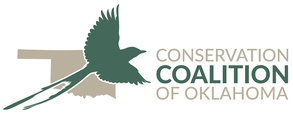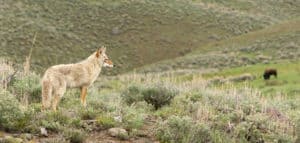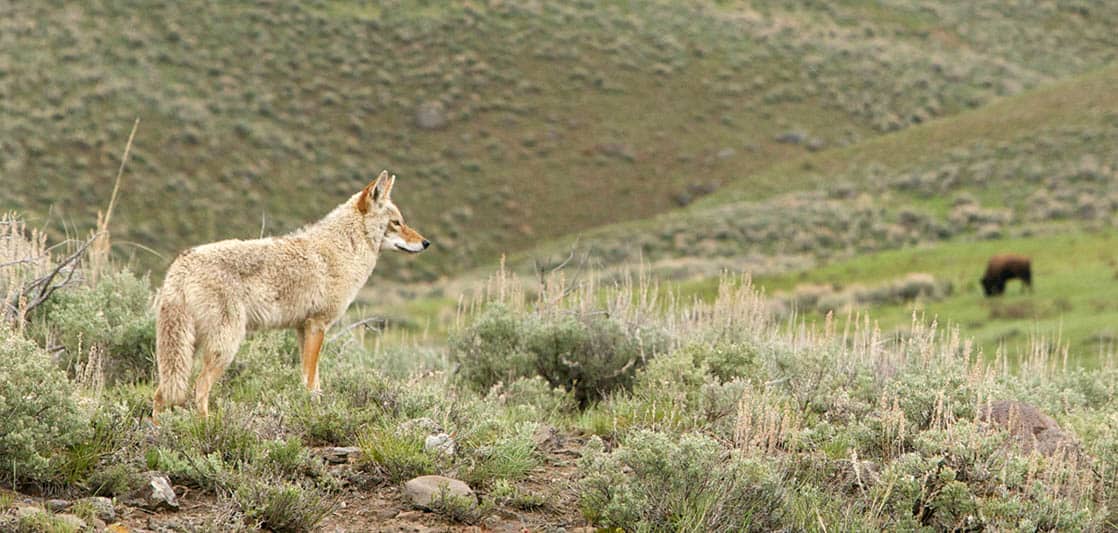By KELLY BOSTIAN
For the CCOF House Bill 2214, a bill of high interest to hunters and anglers this legislative session, passed the House Thursday, is on its way to the Senate, and contains none of its original content. The bill that might have led the way to overhaul of the state’s hunting and fishing license system now would only allow an exemption for use of cyanide-based predator traps on high-fence hunting operations and deer and elk farms year ‘round. The practice is normally not allowed April 1-Sept. 30. The bill initially was a “compromise bill” that would have allowed revamping of the state’s hunting and fishing license system by the Oklahoma Department of Wildlife Conservation in exchange for limitations on public lands purchases by the department. It was initially introduced as a great compromise because everyone was a little unhappy about all parts, but in the end the compromise left too many people unhappy. If those provisions come back before the legislature again next year they won’t be carried by McDugle, he said. “I wanted to carry that this year because I worked with Wildlife on that for two years and we had an agreement with them. We had that agreement and agreement with legislators and we got it through the House, but it was picked apart into pieces in the Senate and then it just died,” he said. “To work on something that hard and have it fall apart in political processes is so disappointing.” One sticking point on the bill focused on giving the Wildlife Department too much authority. Another had legislators objecting to a mandatory 6-month waiting period if the Department wanted to buy lands for public use. The bill was challenged and amended several times, and at one point it surfaced as a bill simply allowed creation of a 365-day hunting and fishing licenses. Now it addresses only the use of the one predator control device. With the bill still on the books and open for amendment it was essentially an open vehicle for other agriculture- or wildlife-related issues, McDugle said. Sen. Casey Murdock, R-Felt, came forward with an idea from a constituent in his part of the state that had problems with coyotes inside a high-fence operation, he said. “It has been completely changed to solve a problem that came about this last year to where one of the big game hunting facilities lost a bunch of their fallow deer due to coyotes,” he said. “There was the section in law that said they couldn’t use these traps during that time of year.” An M44 cyanide device, sometimes called a cyanide gun or by the name of an early 20th century device called a “coyote getter,” is a spring-loaded device that injects sodium cyanide powder into the mouth of a predator (typically a coyote or bobcat) that bites and pulls on a bait atop the device, which is staked in the ground. The Animal and Plant Health Inspection Service of the U.S. Department of Agriculture uses the devices in many western states. Permits also are issued for use on private lands by several state agencies, including Oklahoma. The devices currently are not allowed for use during spring and summer months in Oklahoma due to dangers for young animals in the spring and non-target species, including pets, during summer months. Users must obtain a state permit good for six months and are required to erect Ag Department approved warning signs before the traps are deployed. “All of the (Environmental Protection Agency) rules and state permits still have to be followed but this is for commercial operations and it’s them trying to protect their investment,” McDugle said. “It’s in a protected area behind the high fence so it’s not like wild deer or someone can just stumble on them there.” Representatives of both the Department of Agriculture Food and Forestry and the Oklahoma Department of Wildlife Conservation approved of new exemption, he said. “We finally got something everybody was OK with,” he said. Kelly Bostian is a conservation communications professional working with the Conservation Coalition of Oklahoma Foundation, a 501c3 non-profit dedicated to education and outreach on conservation issues facing Oklahomans. To support Kelly’s work please consider making a tax deductible donation at https://www.oklahomaconservation.org
0 Comments
Leave a Reply. |
Archives
May 2024
Categories
All
|
Conservation Coalition of Oklahoma
P.O. Box 2751
Oklahoma City, OK 73101
[email protected]



